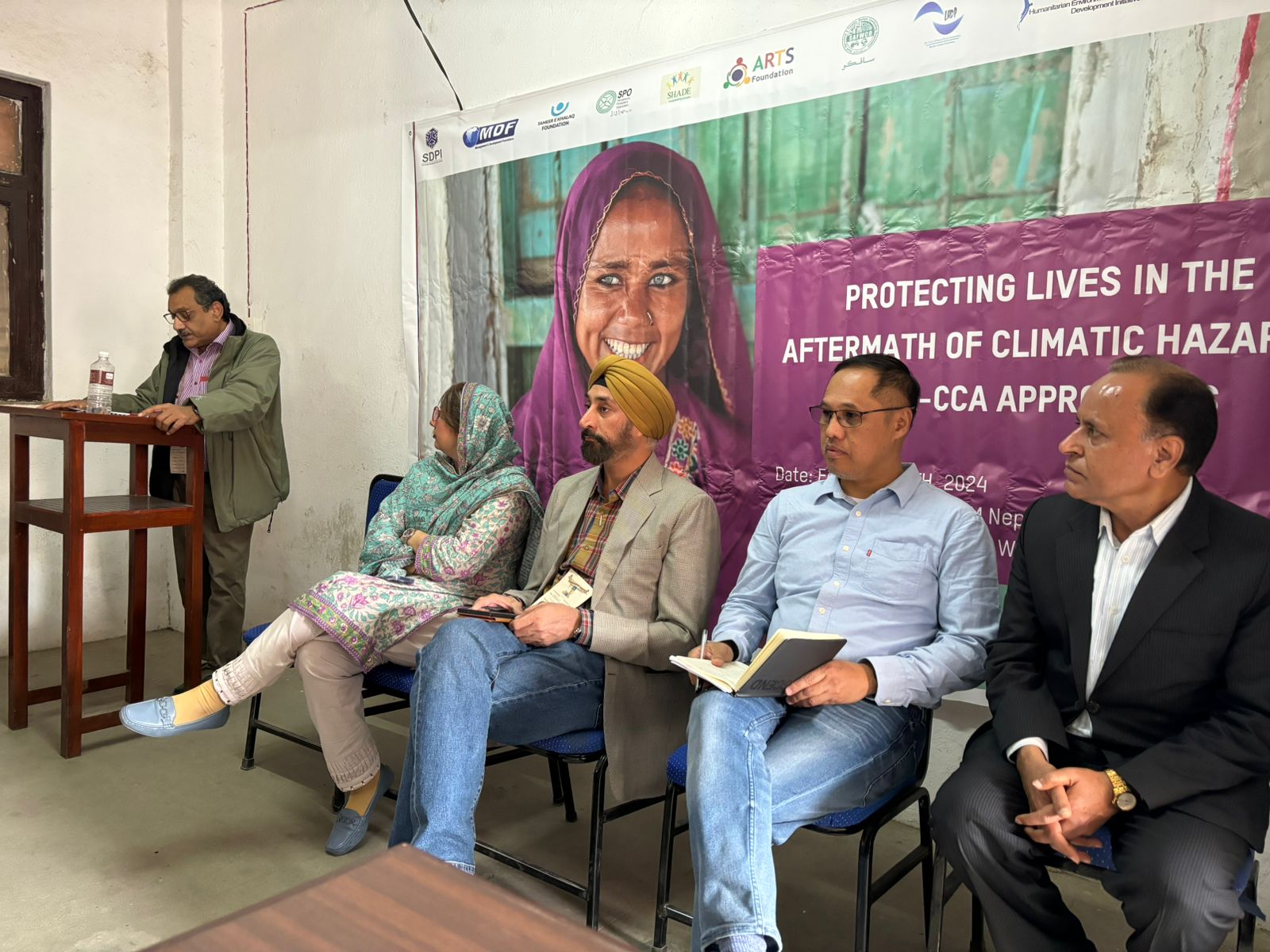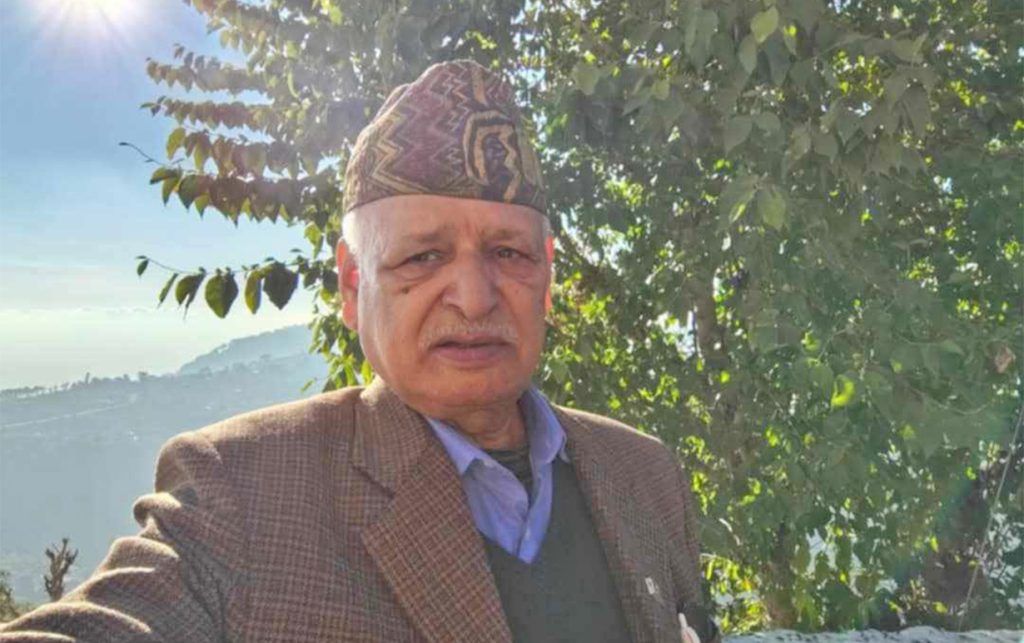
The 16th edition of the World Social Forum is set to be held debut in Nepal from February 15 to February 19, under the theme “Another World is Possible”. The event inclusively aims to bring together workers, farmers, civil organisations, marginalised communities, and advocates committed to addressing pressing global issues.
Among the many dignitaries attending is Amitabh Behar from Oxfam International. Currently serving as the Executive Director (interim) of Oxfam International, Behar brings a wealth of experience, having previously held the position of Chief Executive Officer at Oxfam India. Beyond Oxfam, he has taken up the role of the Vice Chair of the Board of CIVICUS, Executive Director of the National Foundation for India and holding key positions in the National Social Watch Coalition and the Global Call to Action Against Poverty.
As an accomplished global civil society leader and authority on addressing economic and gender inequality, Behar in an interview with Onlinekhabar shared his willingness to work in combating poverty and promoting citizen participation, at the forefront of international efforts to create positive change. Excerpts:
What is the focus of Oxfam International? Where does it work?
Oxfam International operates in over 80 countries, addressing diverse challenges in regions ranging from conflict zones like Ethiopia, and Syria, and humanitarian issues in Honduras and Columbia, to responding to natural disasters such as the earthquake in Morocco and Nepal, including the recent one in Jajarkot.
The organisation engages in extensive humanitarian work, delivers aid and strengthens collaboration with both governmental and non-governmental organisations within the set humanitarian law across the nations. It works to encompass development trajectories, collaborating with civil society leaders, young people, women’s groups, journalists, and researchers.
The focus varies globally, like tackling issues like extractive industries in Latin America, indigenous rights, and inequality in Africa. It consistently emphasises the unsustainable nature of extreme inequality, including gender inequalities, warning of its potential consequences on political stability, social harmony, and economic sustainability.
We believe in systemic change but cannot deliver a just world. It will be the people who will deliver that just world. We are just going to be partners in it and support the people’s movement for justice and equality. Oxfam remains steadfast in its commitment to advocate for a more equitable world and these efforts have gained recognition from global entities like the United Nations and the World Bank.
After having worked in the development sector for so long, how do you define development? What are the sectors of development do we need to focus on in Nepal?
Broadly speaking from the civil society perspective, if you ask me what is development, I would talk of broadly three arenas of work. The first arena is that particularly In our countries like Nepal, India, and a lot of the global south, we realise that there’s such an enormous amount of deprivation. You still see hunger, you still see people do not have even access to basic nutrition, basic health, water and sanitation. This goes beyond mere necessities, aiming to create a living, with dignity.
The second is working with communities, organisations, with government at different levels, provincial, even local governments or national governments to invest in people’s development, fostering resilience, education, and awareness, particularly regarding gender issues. The third, which is the most challenging and important, I would say, is to hold power to account. Be it the state or large corporations, accountable within the framework of a just society, the focus of development needs to be there.
And, in the context of Nepal, we get a very unique exciting space to work. Nepal, still in the least developing countries list, has huge deprivations with high levels of poverty, lack of health access, water sanitation, et cetera.
Despite facing challenges in traditional development indicators, however, the nation presents a unique opportunity for individuals to actively determine their destiny, thanks to a remarkable period of democratisation in the last 15 years. Nepal offers the chance to contribute meaningfully to the multifaceted landscape of development, with an inclusive constitution to back it up.
What are the opportunities and challenges of working in Nepal?
If you’re seeing it from my lens, over my regular visits spanning almost two decades, I see that Nepal boasts a progressive constitution and a political class that has recently engaged in collaborative efforts with the people. Unlike entrenched political classes in other regions, Nepal’s political landscape appears dynamic. The country also benefits from a mobilised citizenry and robust community groups, both vital components of the democratic movement.
Additionally, Nepal provides the advantage of a competent and committed team, exemplified by my colleagues at Oxfam Nepal, who possess a deep understanding of both the country and the technical intricacies related to issues such as water, sanitation, and education.
However, the challenges are also substantial. The same high levels of poverty and underdevelopment, reflected by indicators like maternal mortality and access to basic amenities like health, sanitation and clean water; make Nepal one of the most challenging spaces globally. The country is currently in the process of graduating from the LDC status, indicating a positive trajectory. But, until 2026, it is likely to grapple with significant development challenges. It still requires serious investment, and navigating these challenges demands a careful balance to ensure the focus remains on addressing the real issues faced by the people and avoiding distractions.
While working in the field, as an international organisation, do you see reservations from people’s sides?
I say it is a mixed bag. I travel around the world and I see both trends. One trend is that NGOs come and do not do anything worthwhile. But on the other hand, I see enormous energy in people when they see NGOs or social groups.
The latter see I/NGOs as their primary source of strength and inspiration. The prevailing sentiment often revolves around a sense of frustration and anger directed at established power structures, whether at the state or community leadership levels. They feel very disappointed–particularly the poor, the marginalised, and the vulnerable communities. In conversations with individuals from these communities, there’s a prevalent belief that entities like ours, functioning as not-for-profits and social action groups, are allies committed to standing with them and facilitating positive change in the challenging realities they face.

As you mentioned, the focus is on the issues of inequalities and gender issues. How do you see such issues being addressed in Nepal?
Inequality, in a way, is a political choice and we need to fight that. In addressing issues of inequalities and gender in Nepal, we need a comprehensive approach aligned with sustainable development goals (SDGs 2030). There’s a need for serious, intentional investment in addressing SDGs, particularly goal number 10.
Inequality in Nepal manifests in various forms, including economic and gender disparities, and the first steps of measuring and acknowledging these inequalities through data. To combat inequality effectively, intentional policies are essential, with a focus on taxing the super-rich, investing in education, health, and public services, and ensuring fair living wages. The government must allocate a budget that prioritises social security measures.
Meanwhile, for the last few years, in light of the alarming statistics, Oxfam has worked to address economic inequality such as the doubling of wealth for the top five billionaires contrasted with five billion people becoming poorer. We have entered what we are calling the era of billionaire supremacy, and it is happening because of multiple reasons, which include tax dodging, inequality in paying taxes, and monopolies.
The urgency of addressing inequality is underscored by its impact on environmental issues and climate crisis, as highlighted in a report linking the top 1 per cent of economic wealth holders to twice the carbon emissions of the bottom 50 per cent. The devastating consequences of the climate crisis disproportionately affect marginalised communities, and indigenous communities emphasising the need for immediate action on inequality and loss of livelihoods. This is true in Nepal too.
Turning to gender issues, there needs a multi-faceted approach to address the unjust distribution of power, with a specific focus on the unpaid and underpaid care work performed by women. We did a report two years ago which said women contribute almost more than USD 10 trillion of unpaid care work to the global economy.
We, at Oxfam, are continuously working and advocating for change in policies and laws to recognise, redistribute, and reward many essential but often undervalued contributions to the global economy. We are also engaging in community-based initiatives to challenge and transform entrenched gender norms. And working with young people to build their understanding of a just world, fostering a future generation committed to gender equality and social justice.

You are here for the event this time. What are your expectations from it? How do you expect it to affect Nepal?
Attending the World Social Forum holds immense significance. It provides a unique privilege for organisations like Oxfam to amplify the voices of the people and articulate global issues. It serves as a vital platform to identify and address the concerns of individuals from diverse backgrounds. More importantly, it fosters solidarity among various social movements and seeks to create alternatives to the prevailing economic order that fuels unacceptable inequalities and environmental crises.
The choice of Nepal as the venue for this edition adds an extra layer of importance. As a South Asian, I take pride in the selection of Nepal, a nation that upholds the ethos of democracy. The event in Nepal is an opportunity to showcase the struggles and democratic aspirations of the country. In a global landscape where authoritarianism is on the rise and civic space is shrinking, Nepal stands as a beacon for the democratic articulation of people’s voices. This is a unique space that many countries currently lack, and I hope the event inspires others by exemplifying Nepal’s commitment to democratic ideals.
Furthermore, the event in Nepal is not just about discussions and ideals; it’s about translating inspiration into action. I am hopeful that the event will encourage people to invest their efforts in Nepal, collaborating with local colleagues, social movements, and groups. The objective is to contribute collectively towards making Nepal a more just, sustainable, and equal country, setting an example for others to follow.



















